By Jeff Smith, on Fri Mar 23, 2012 at 8:30 AM ET  He’s staying in the race for three reasons: 1) to get himself – and son Rand – decent speaking slots in Tampa, and 2) to keep building a fundraising list that he can bequeath to Rand; and 3) to build field lists in all 50 states that Rand can use in a 2016 or 2020 presidential run. He’s staying in the race for three reasons: 1) to get himself – and son Rand – decent speaking slots in Tampa, and 2) to keep building a fundraising list that he can bequeath to Rand; and 3) to build field lists in all 50 states that Rand can use in a 2016 or 2020 presidential run.
I bet no first time national candidate in history will start out with as many yard-sign locations than Rand – not even rock-star candidates like HRC and Obama in 2008.
Given the above, it’s kind of sad to watch all these middle and working-class small donors get fleeced, but hey, like Paul says, it’s a free country! (Just not quite free enough for his taste.)
(Cross-posted, with permission of the author, from Politico’s Arena)
By RP Staff, on Fri Mar 16, 2012 at 10:00 AM ET Contributing RP Jeff Smith hit the national radio airwaves yesterday to talk about the advice he’s given to Rod Blagojevitch on his first day in prison.
Click here to listen to the NPR interview.
Click here to read his essay.
By Jeff Smith, on Thu Mar 15, 2012 at 12:30 PM ET As former Illinois Rod Balgojevich spends his first full day behind bars, contributing RP Jeff Smith offers him a few educated tips:
 After spending a year in federal prison on an obstruction of justice charge stemming from a 2004 congressional campaign violation, I have a few tips for former Illinois Gov. Rod Blagojevich as he heads for prison. After spending a year in federal prison on an obstruction of justice charge stemming from a 2004 congressional campaign violation, I have a few tips for former Illinois Gov. Rod Blagojevich as he heads for prison.
1. As your grandma probably taught you, God gave you two ears, two eyes and one mouth — use them in proportion.
• When you get to prison, listen, watch and learn. You’ll have a hundred questions on your first day and in one month you will know the answer to 90 of them without having to ask and risk looking stupid.
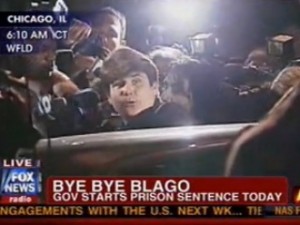 •Don’t ever ask anybody about their crime. If they want to tell you what they did, fine. But you won’t know if they’re telling the truth. And if you ask and strike a nerve with someone, the result may not be pretty. •Don’t ever ask anybody about their crime. If they want to tell you what they did, fine. But you won’t know if they’re telling the truth. And if you ask and strike a nerve with someone, the result may not be pretty.
•Don’t talk about how you got railroaded. So did everyone else.
•Don’t ask anything about anyone’s family; it will be a sore subject with many, especially those who have not seen or heard from their children or ex-wives in years.
•Don’t ever talk about how much time you have. Someone else has more.
Read the rest of…
Jeff Smith: Advice for Blago on His First Day in Jail
By Jeff Smith, on Wed Mar 14, 2012 at 8:30 AM ET  Was it fair when Al Gore – who actually had done more than just about any member of Congress to help make it happen – was pilloried for the line about “inventing the Internet” (despite it being a misquote)? Was it fair when Al Gore – who actually had done more than just about any member of Congress to help make it happen – was pilloried for the line about “inventing the Internet” (despite it being a misquote)?
Fair when Gore was off by $50 or so in relating the price of his mother-in-law’s meds, and got castigated for it – even as Bush’s mostly unexamined references to his proposed tax cuts understated its size by $900 billion?
Of course not. Politics, like life, isn’t fair. The media – aided substantially by opposing campaigns – looks for a stylized fact that fits a developing narrative, and creates a caricature.
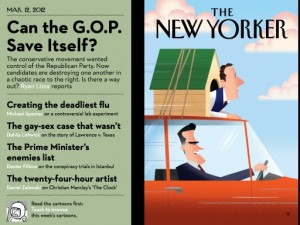 And it goes without saying that you couldn’t make up a story that better fits the narrative of a coldly (and cruelly) efficient Rombot than the Seamus story. And it goes without saying that you couldn’t make up a story that better fits the narrative of a coldly (and cruelly) efficient Rombot than the Seamus story.
Point is, it’s not going away. Pet lovers vote – and even non pet-lovers find the story alarming. So I suspect you’ll see Dem-driven “protests” by dogs at Romney events throughout the summer and fall. And I suspect that they will overpower the concerted effort Romney and his family have been making for months to “humanize” Mitt via the contrived retelling of “warm, fuzzy Mitt” stories.
(Cross-posted, with permission of the author, from Politico’s Arena)
By Jeff Smith, on Mon Mar 12, 2012 at 1:30 PM ET Best piece of the cycle by Nate Silver (@fivethirtyeight) on destiny of geography- recalls V.O. Key’s ’49 “friends+neighbors” theory:
In G.O.P. Nomination Race, Geography Has Been Destiny
By NATE SILVER
Rick Santorum’s victory in the Kansas caucuses on Saturday wasn’t much of a surprise, but his margin was toward the high end of expectations as he took 51 percent of the vote to Mitt Romney’s 21 percent. It was the largest margin of defeat for Mr. Romney in caucus or primary to date, although he lost the “beauty contest” primary in neighboring Missouri by almost as large a margin.
Mr. Santorum’s success in Kansas was also geographically sweeping. He took all four Congressional districts and all but one small county. Under Kansas’ delegate allocation rules, he should receive about 33 delegates to Mr. Romney’s 7 once the results are verified.
By Jeff Smith, on Thu Mar 8, 2012 at 9:15 AM ET  Has Newt, for all his visceral hatred of Mitt, realized how badly Mitt needs him to stay in? Has Newt, for all his visceral hatred of Mitt, realized how badly Mitt needs him to stay in?
Click here to read Alexander Burns’ “Mitt Romney Tries to Break Southern Losing Streak” in Politico.
By Jeff Smith, on Tue Feb 28, 2012 at 1:15 PM ET In several well-read pieces here at The Recovering Politician, former Missouri State Senator (and contributing RP) Jeff Smith has analyzed the impact of redistricting on his one-time political rival Congressman Russ Carnahan, and then predicted that Carnahan would ultimately choose to challenge his fellow Democratic Congressman William Lacy Clay.
Turns out, Jeff was right. Here’s an excerpt from Real Clear Politics, “Carnahan Files for Congressional Seat.”
Scores of hopeful candidates turned out Tuesday to file for political offices in Missouri, including a pair of incumbent St. Louis congressman now poised to square off in a Democratic primary, despite legal uncertainty over the district boundaries.
The candidacy filing period for the 2012 elections kicked off as planned, even though Missouri still lacks a final map for the state Senate districts and the Missouri Supreme Court has yet to rule on challenges to the state and U.S. House districts.
The first to file Tuesday was Democratic U.S. Rep. Russ Carnahan of St. Louis, whose 3rd District was carved up and re-assigned to surrounding districts under a reapportionment plan enacted by the Republican-led state Legislature after the 2010 census. Until Tuesday, Carnahan has steadfastly affirmed he would run again in 2012 but had remained silent about in which district he would run _ hoping the Supreme Court would toss out the new map and order a do-over on the boundaries.
Carnahan filed to run in the 1st District in St. Louis, which currently is held by Democratic U.S. Rep. William Lacy Clay. Not too far behind Carnahan in line, Clay also filed to run for re-election Tuesday, setting up a battle in the August primaries that both congressmen declared they could win.
Read the full piece from Real Clear Politics here.
By Jeff Smith, on Thu Feb 9, 2012 at 12:30 PM ET 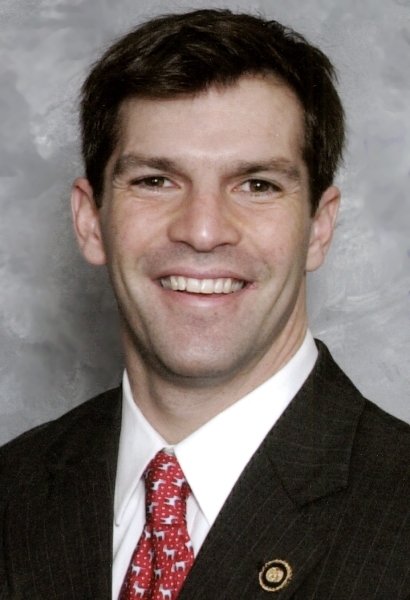 It does bring him closer to the nomination, due in no small part to his uncanny good fortune. Let’s review. It does bring him closer to the nomination, due in no small part to his uncanny good fortune. Let’s review.
The woman who rose meteorically to take the Iowa straw poll collapsed upon the entrance of a governor who offered the veneer of tea party rhetoric as strident as hers, but had the backing of mega-donors from the state with more Republican money than any other outside California.
That governor, who was thought to be his leading conservative opponent, turned out to have spent about as much time preparing for the campaign as my students spend preparing for pop quizzes.
When the governor’s lack of preparation became obvious, he was replaced briefly as the national frontrunner by a former pizza executive who made the governor look like Thomas Jefferson.
When the pizza exec showed himself to be completely unfamiliar with some of the most basic facts of foreign policy, and an impressively lecherous fellow to boot, a new frontrunner emerged, one whose national favorable ratings were lower than Nixon’s during impeachment. This man had a record of personal behavior that John Edwards might have been ashamed of combined with an unmatched proclivity to self-destruct, and he proceeded to do so in short order.
The former senator who rose in Iowa at the last moment to replace him as frontrunner had raised less than $1M at the time of his ascent, and lacked any semblance of national campaign infrastructure.
But to Romney’s great good fortune, the man less popular than an impeached Nixon regained enough momentum in the ensuing weeks to ensure that the previous man could not build on his Iowa victory – a victory which was, to Romney’s even greater good fortune, not made official until weeks later, dramatically reducing its impact.
I challenge even the most imaginative journalist or satirist in the nation to conjure another scenario by which the anti-Romney majority could have been so improbably failed to unite.
(Cross-posted, with permission of the author, from Politico’s Arena)
By Jeff Smith, on Wed Feb 8, 2012 at 8:30 AM ET  Race has played an underlying role in most national elections since former President Martin Van Buren ran on the Free-Soil ticket in 1848, splitting Democratic candidate Lewis Cass’s vote in New York State and helping facilitate the victory of pro-states rights Whig General Zachary Taylor. Race has played an underlying role in most national elections since former President Martin Van Buren ran on the Free-Soil ticket in 1848, splitting Democratic candidate Lewis Cass’s vote in New York State and helping facilitate the victory of pro-states rights Whig General Zachary Taylor.
The role of race receded briefly in the post-Reconstruction era, as the Democratic Party snubbed blacks and the Republicans essentially ignored them for decades, in the wake of the Compromise of 1877.
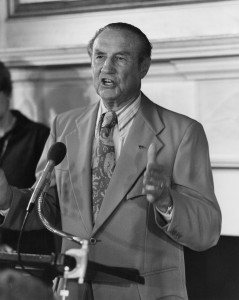 FDR had an interest in suppressing Democratic divisions on race throughout the 1930s in order to push his New Deal agenda. But race came roaring back in the 1940s, as Strom Thurmond’s Dixiecrats split from incumbent Democrat Harry Truman in 1948 to form a third (actually, fourth) party that year. Since then, racial issues have been salient in nearly every election. FDR had an interest in suppressing Democratic divisions on race throughout the 1930s in order to push his New Deal agenda. But race came roaring back in the 1940s, as Strom Thurmond’s Dixiecrats split from incumbent Democrat Harry Truman in 1948 to form a third (actually, fourth) party that year. Since then, racial issues have been salient in nearly every election.
In 1960, JFK’s call to Coretta Scott King helped him win approximately two-thirds of the black vote, despite that fact that there was no real difference between his position and Nixon’s on civil rights. In 1964, civil rights was perhaps the primary issue cleavage, as Goldwater was staunchly opposed to the 1964 CRA pushed by LBJ, and consequently carried only his home state + the Deep South. In 1968 and 1972, Nixon’s “Southern Strategy” was premised on the white backlash against the civil rights movement. In 1980, Reagan went to Philadelphia, Miss., where three civil rights workers were brutally murdered in 1963, to kick off his 1980 general election bid and proclaimed that “the spirit of Jefferson Davis lives in this year’s Republican Party platform.” In 1988, Wille Horton became a household name. In 1992, Clinton successfully walked the racial tightrope: he signaled that he would not be co-opted by Jesse Jackson and, by proxy, the party’s African-American base by dissing Jackson via Sister Souljah at the Rainbow Coalition convention, but reassured blacks that he would “mend, not end” affirmative action. In 2000, Bush deftly alluded to race in his bid for suburban women (and perhaps a sprinkling of blacks) by decrying the “soft bigotry of low expectations that plagued urban schools. And in 2008…well, you know.
Read the rest of…
Jeff Smith: Race Has Always Been An Election Issue
By Jeff Smith, on Mon Feb 6, 2012 at 9:30 AM ET  Jeff Smith: Rebuttal #2 Jeff Smith: Rebuttal #2
[Krystal Ball’s Provocation; Artur Davis’ Rebuttal #1]
I think Krystal pegs the psychology of Newt perfectly when she suggests that no one in the country will be happier with a Romney loss in November, with the possible exceptions of Jeb Bush, Chris Christie, and Bob McDonnell. As the old Janis Joplin song goes, Freedom’s just another word for nothin’ left to lose. And Mitt won’t be quite so enamored of the concept of “freedom” when he sees how Newt uses his in the the next few weeks. Rather, he’ll be urging his Jewish bundlers to call Adelson and beg him to stop (assuming he hasn’t already done so.)
I also agree with her smart observation that Newt has leveled much harsher critiques of Mitt Romney’s time at Bain Capital than Democrats would be able to pull off. Even more importantly than the attack is that Romney’s takeaway from the attacks will be, I think, that his response was effective. But I don’t think it will work in a general to proclaim, “I don’t apologize for my success” without expressing some empathy for all the people who lost jobs when companies went under after Bain sucked them dry.
Regarding Artur’s analysis, I’m not sure how Democratic losses in all of the states cited signify a victory of ideology over personality. Knowing both of the candidates in Missouri last cycle, for instance, I would say just the opposite: Republican Blunt was an affable, indefatigable campaigner who disarmed urban Democrats during intimate meetings while retaining his rural conservative base. Conversely, Democrat Robin Carnahan was widely seen even by Democrats as inaccessible and icy, and even after ostentatiously moving towards the middle proved utterly incapable of connecting with center-right voters. I don’t think ’10 was an ideological election any more than ’06 or ’08 were ideological elections favoring progressives; it was merely one more lurch back by an unsettled, anxious electorate pounded by job losses and economic insecurity.
Read the rest of…
The RPs Debate the GOP Mudfest: Jeff Smith Rebuts
|
The Award-Winning Documentary about Jeff’s Early Career (2006):
The Recent New Republic Article About Jeff (2011):
|
|
|
 He’s staying in the race for three reasons: 1) to get himself – and son Rand – decent speaking slots in Tampa, and 2) to keep building a fundraising list that he can bequeath to Rand; and 3) to build field lists in all 50 states that Rand can use in a 2016 or 2020 presidential run.
He’s staying in the race for three reasons: 1) to get himself – and son Rand – decent speaking slots in Tampa, and 2) to keep building a fundraising list that he can bequeath to Rand; and 3) to build field lists in all 50 states that Rand can use in a 2016 or 2020 presidential run.












 It does bring him closer to the nomination, due in no small part to his uncanny good fortune. Let’s review.
It does bring him closer to the nomination, due in no small part to his uncanny good fortune. Let’s review.

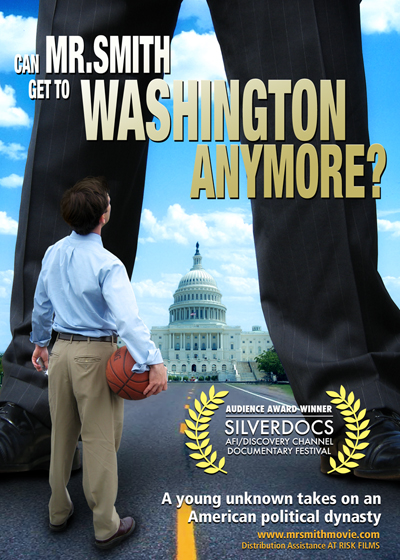









Follow Jeff Smith: